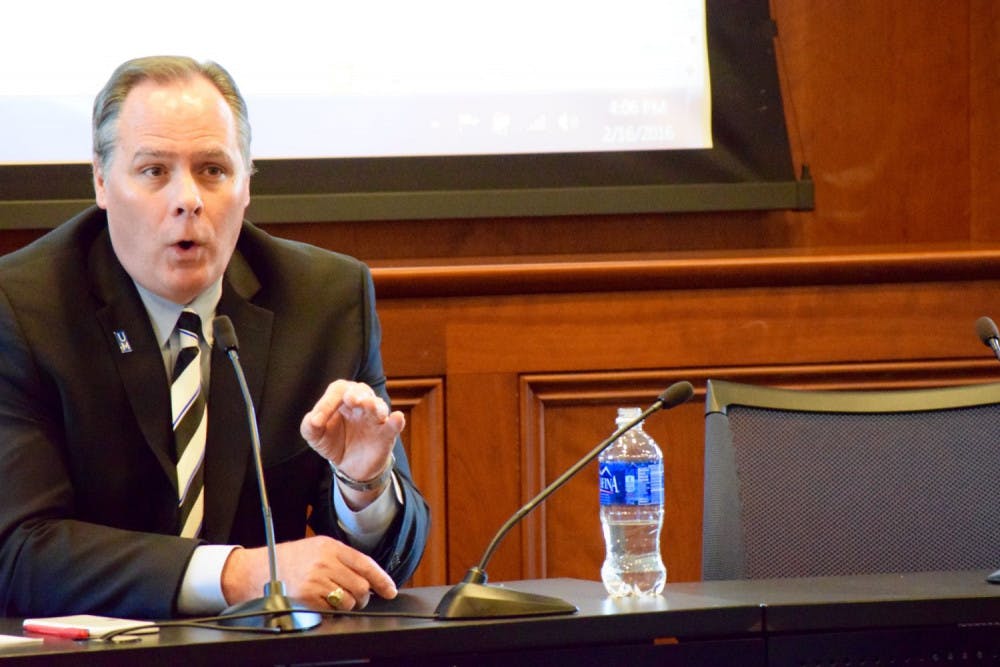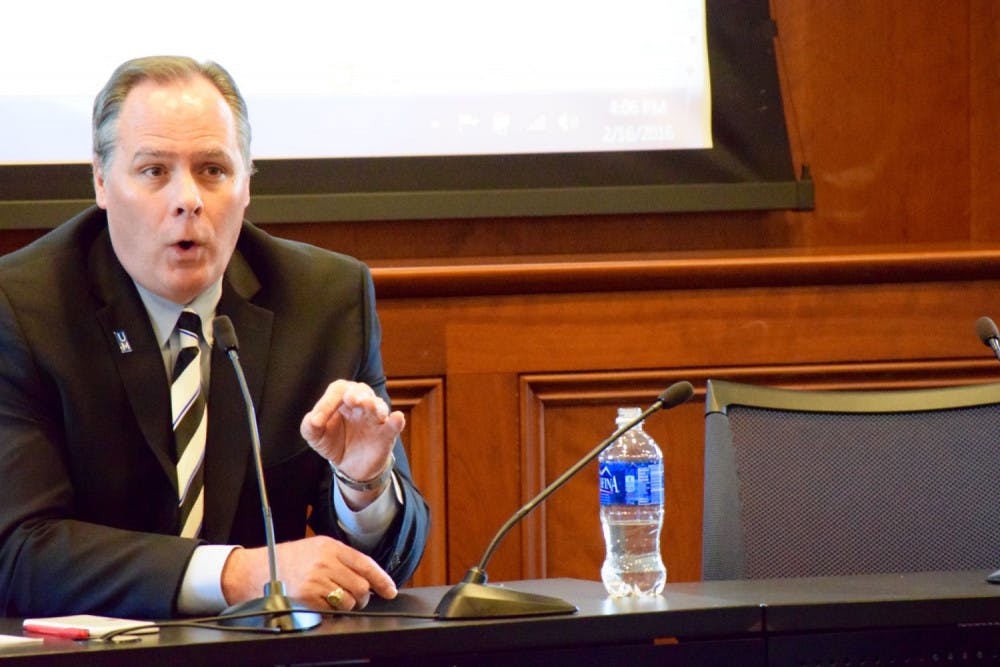
The University of Memphis is likely to split from the Tennessee Board of Regents and form its own governing body. Soon, however the student representative on this new board may not have voting privilege. Rudd said he could bring up the issue of the student member having voting privileges. “I have one voice and one vote,” he said. “I am happy to raise that issue and explore it.”
The University of Memphis will soon have the power to raise student fees and tuition without state approval through a new local governing board.
However, the student member of this soon-to-be-created board will likely have little say in decisions made.
U of M president David Rudd confirmed the independent board would have at least one student member during the Wednesday meeting with faculty and students.
However, at this time, the U of M student member appears to have no voting privileges.
“If you look at the act, there is an inclusion of a student as a non-voting member,†he said.
Unlike other members of this soon-to-be board, the student member position would likely change more frequently than other members, Rudd said. This means the student would likely not have the ability to learn about or understand complex issues.
“To be able to offer a response to some of the issues requires a familiarity that takes an enormous amount of time and investment in terms of the decision making process,†Rudd said. “I think that the belief was that the student member would not participate for a long enough period of time to really gain that level of familiarity.â€
However, the decision to allow the student to vote on the board is still up in the air, as much of how the new governing board will operate has yet to be decided.
“It certainly is not a decision that I make independently,†Rudd said. For now, it seems the board will have at least 10 members.
One will be from the faculty and another from the student body.
It seems that at least nine of the members will have voting privileges.
“There will be more rotation on the student representative than the faculty representative,†the University president said. “But that’s a process yet to be determined.â€
This comes as state lawmakers are dismantling the Tennessee Board of Regents, the governing body for public colleges and universities across the state. TBR approves tuition rates, fee hikes and building permits for all of these institutions.
Under a new proposed law, the Focus Act, every public institution of higher learning will have it’s own governing board and TBR will become a thing of the past.
Rudd said he has every reason to believe legislators will unanimously vote for the U of M’s separation from TBR.
“This is an opportunity for enhanced transparency,†Rudd said. “It’s an opportunity for additional involvement at the local level, and it is certainly an opportunity for enhanced accountability at the local level.
That means enhanced accountability of me and the leadership team and the administration at this university.
â€This separation has been an issue for the University for decades†Rudd said.
Rudd is one of about two-dozen members of the committee that decides how the future U of M board will be shaped, he said.
Rudd said he could bring up the issue of the student member having voting privileges.
“I have one voice and one vote,†he said. “I am happy to raise that issue and explore it.â€






